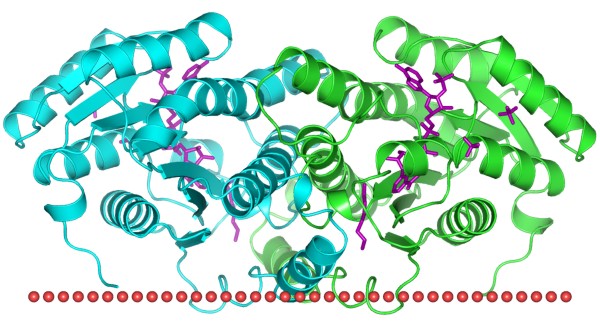Mempro™ Plant-Based Transmembrane Proteins with NAD(P)-binding Rossmann-fold Domains Production
Based on the comprehensive membrane protein production platform developed through years of experience, Creative Biostructure is able to provide world-leading customized transmembrane proteins with NAD(P)-binding Rossmann-fold domains production services using plant-derived expression system. Our patent plant-based platform has many advantages for transmembrane protein production, including high yield, animal-free, low protease activity, and low endotoxin, etc.
Transmembrane proteins with NAD(P)-binding Rossmann-fold domains are a large superfamily that can be divided into two families: tyrosine-dependent oxidoreductases family and flavin-containing amine oxidoreductase family. Tyrosine-dependent oxidoreductases family is also named short-chain dehydrogenases/reductases (SDR) family, which has already been identified almost 140 enzymes. Flavin-containing amine oxidoreductase family is composed of various amine oxidases, including GlpO (alpha-glycerophosphate oxidase), protoporphyrinogen oxidase, and monoamine oxidase A and B. They are closely related to the metabolism of amine.
 Figure 1. The structural model of Corticosteroid 11-beta-dehydrogenase, isozyme 1. (OPM Database)
Figure 1. The structural model of Corticosteroid 11-beta-dehydrogenase, isozyme 1. (OPM Database)
Creative Biostructure has strong expertise in providing best membrane protein production services using various types of plant hosts, including Nicotiana benthamiana (tobacco), Medicago rativa (alfalfa), Arabidopsis thaliana (A. thaliana), potato, maize, barley and lettuce. Creative Biostructure can select two different strategies for membrane protein production in plants: transient expression and stable transformation. We can generate animal-free recombinant membrane proteins, which are particularly crucial for customers concerned with experimental variables caused by trace animal components or mammalian pathogens. Notably, recombinant membrane proteins expressed by our plant system are free of animal components, serum, endotoxins and antibiotics as well as human or animal infectious agents or other endogenous mammalian contamination. Additionally, post-translational modification such as glycosylation and disulfide bonds can be introduced in plant system.
With the Mempro™ plant-based protein production platform, Creative Biostructure is capable of expressing, isolating and purifying transmembrane proteins with NAD(P)-binding Rossmann-fold domains to facilitate the study of their biological functions. We can overcome the common difficulties encountered in cell-based expression system, such as misfolding, aggregation, inactivity, high endotoxin, poor stability and solubility, etc.
Creative Biostructure can also provide Mempro™ plant-based virus-like particles (VLPs) production services, Mempro™ animal-free recombinant protein production services and Mempro™ membrane protein production services. Please feel free to contact us for a detailed quote.
References:
A. Wiktorek-Smagur, et al. (2012). Green way of biomedicine – how to force plants to produce new important proteins. Transgenic Plants-Advances and Limitations, Chapter 3. doi: 10.5772/1409.
Filling C, et al. (2002). Critical residues for structure and catalysis in short-chain dehydrogenases/reductases[J]. J. Biol. Chem, 277(28): 25677-25684.